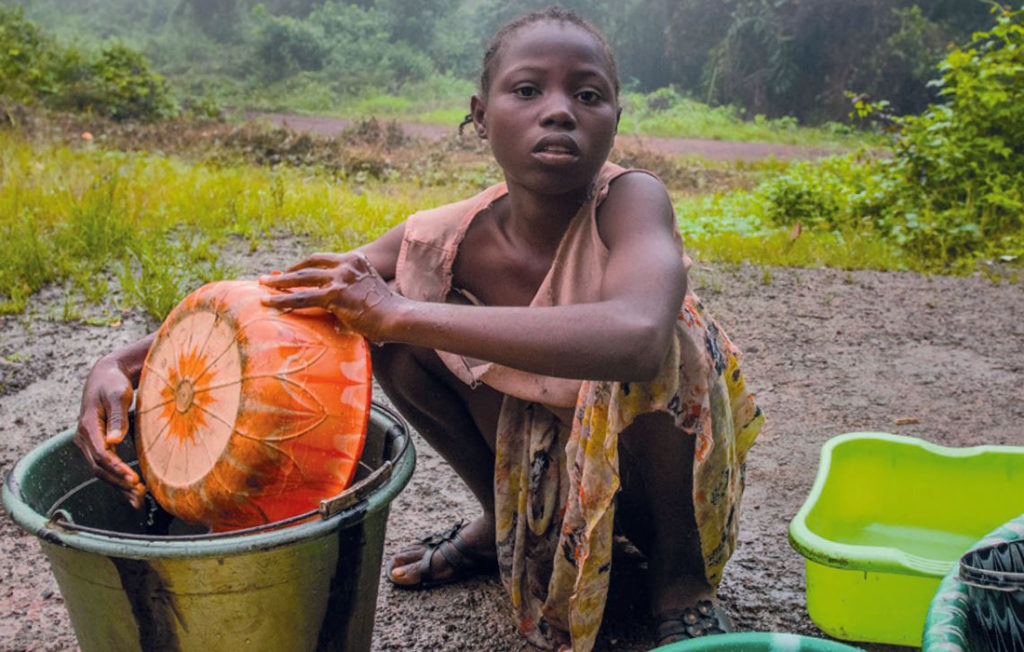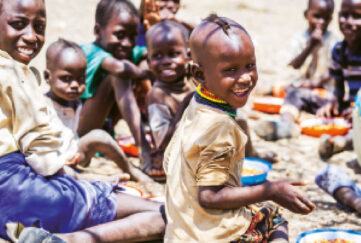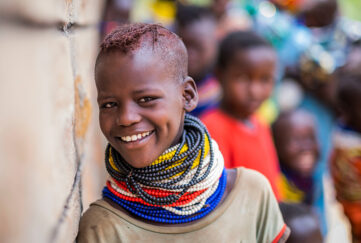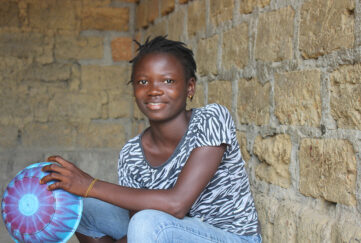Our 2019 Helping Hand Appeal
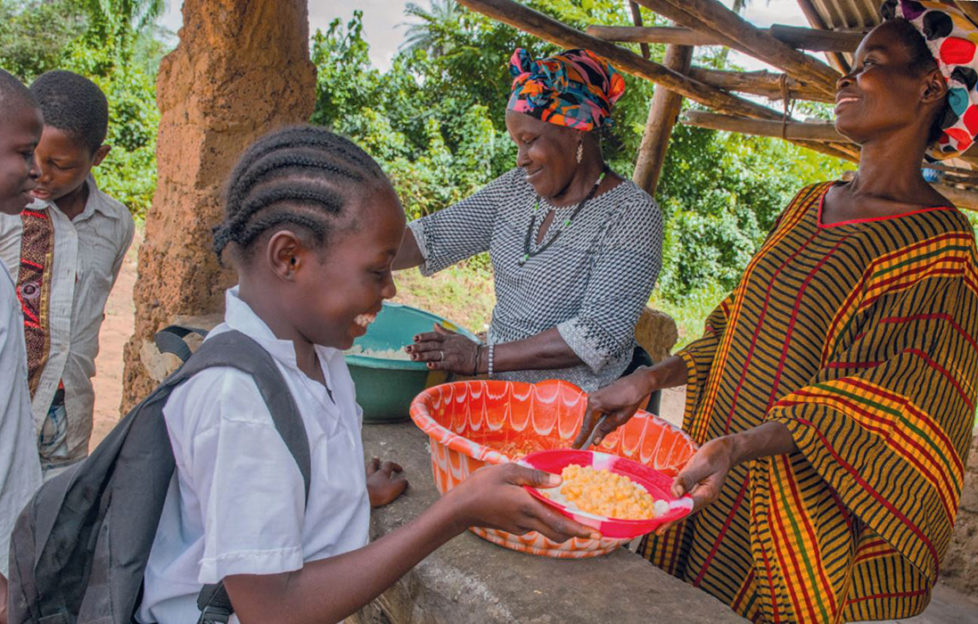
Thanks to our lovely readers we’ve raised over one million pounds for charity in the last 20 years through our Helping Hand appeals, most recently working with our charity partner Mary’s Meals.
This year your donations will help feed hungry children in the world’s most poverty-stricken areas by providing a meal at school, allowing not only much needed nutrition but giving each child a reason to continue their education.
Joanna Moorhead travelled to Liberia, to find out how your donations to Mary’s Meals are helping vulnerable children…
I’m here on behalf of My Weekly readers who have been stalwart suppporters of the work of the Helping Hand appeal for Mary’s Meals over many years, to report from the African frontline on the difference the charity is making – and how much more needs to be done.
Liberia, a country racked by civil war for more than 30 years before 2003, is one of the poorest nations on earth, and hungry children being raised in impoverished families aren’t the exception – they’re the rule.
Two hours of chores before school
It’s not quite dawn, but eight-year-old Massa is already up and about. For the next two hours, before she sets off for school, she’ll help her parents by collecting firewood from the woods, fetching water from the village well, and sweeping the porch, moving aside the two battered plastic chairs that are her home’s only furniture.
By the time I arrive at the shack where she lives, in a tiny village called Domagbamatma (population 63) in Bomi County, Liberia, Massa is already washing some pots in a large metal bowl.
As Massa disappears inside to put on her uniform – somehow, however basic their living space, Liberian kids always manage to look pristine for school – I’m struck by the similarities, and the differences, between school for her, and for my own daughter in the UK.
Like Massa, my Catriona will be getting ready to set off right now (Liberia is just an hour behind UK time). Like Massa, she’ll be packing her school bag with exercise books and pens for the day ahead.
Like Catriona, Massa is keen on her learning, and anxious to do well; like her, she’s excited about the possibilities that learning brings.
But there the similarities end. Because while Catriona is headed – by train – to a well-resourced school with spacious classrooms, a playground, a library and specialist teachers, Massa is setting off, on a 40-minute walk, to a clutch of tumbledown concrete classrooms. There, children will be jammed into battered Victorian-style desks, and will learn to read by rote from the blackboard.
Vorkor Public School has no textbooks, no reading books, no play area, and no assembly hall. The walls, which in a British school would be covered with interesting art and projects, are thin sheets of peeling paint.
In front of the classrooms is scrubland of red-brown earth with rubbish piled up at one side. Round the back is the most basic of latrines.
One important similarity…
There is, though, one important similarity between Catriona’s school and Massa’s.
Photographer Chris Watt and I join Massa on her walk to school. As we turn up the path towards the classrooms, we can see smoke curling from an open-sided structure, with a corrugated iron roof held up with wooden poles, adjacent to the buildings.
This is the school kitchen, and a huge tub of water is already beginning to simmer. Into it, volunteer cooks Jenner Sarh and Hawa Morris will soon be pouring the beans and rice that will form the basis of today’s lunch.
And in a couple of hours’ time, the 136 pupils of Vorkor School will line up with the bowls they’ve brought in their school bags, for their meal.
School dinners are an important part of life in any school, but at schools like Vorkor they’re critical
English, maths and science matter, but eating matters more than anything. And in a country like Liberia, many families can’t afford to give their kids a balanced diet.
Massa’s pa, as she calls him, Abu, has already told us that when we met him first thing at the family home. He and his wife Marma have five children, and they eke out a living from the land around their shack.
If there isn’t enough food, it makes no sense for the children to go to school. Hungry, they learn nothing. And what’s more, they need to forage for food to survive.
If food is provided, everything changes
But if food is provided at school, as it is at Vorkor, thanks to Mary’s Meals – everything changes.
School principal, Mr Sando, tells me:
Many of the families whose children come to this school are struggling to feed their children
“If parents know the children will get a good meal in school, they make sure they get here. And when their stomachs are full, they can pay attention to their lessons, and learn.”
From the classroom next door comes the sound of Massa and her friends chanting the words on the blackboard, as they do some reading. Most, like Massa, have had no food yet today – but we can already smell the cooking beans and rice.
When the bell rings for mealtime, it’s clear its peals signal a lot more than a school meal. They spell hope, for Massa and all her friends. Food will keep her coming to school, and school has the power to transform her future.
“She’s a very promising pupil,” says Mr Sando. “She just has to keep on coming to class and learning. And thanks to Mary’s Meals she will do that.”
Our Helping Hand Appeal 2019
Through the support of our readers we are delighted once again to be helping Mary’s Meals maintain and expand their feeding programme around the world. A donation of just £13.90 will feed a child for a whole school year.
To make a donation send a cheque or postal order to My Weekly Helping Hand Appeal, 2 Albert Square, Dundee DD1 1DD. Or you can donate in other ways: Freephone 0800 698 1212 or visit www.marysmeals.org.uk.

